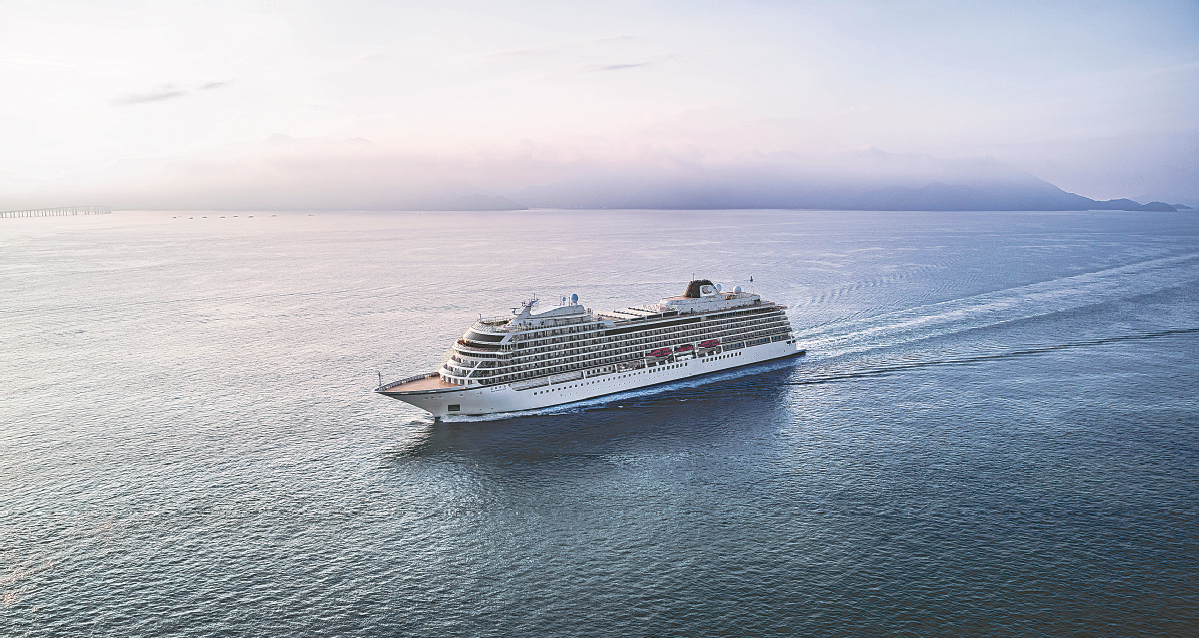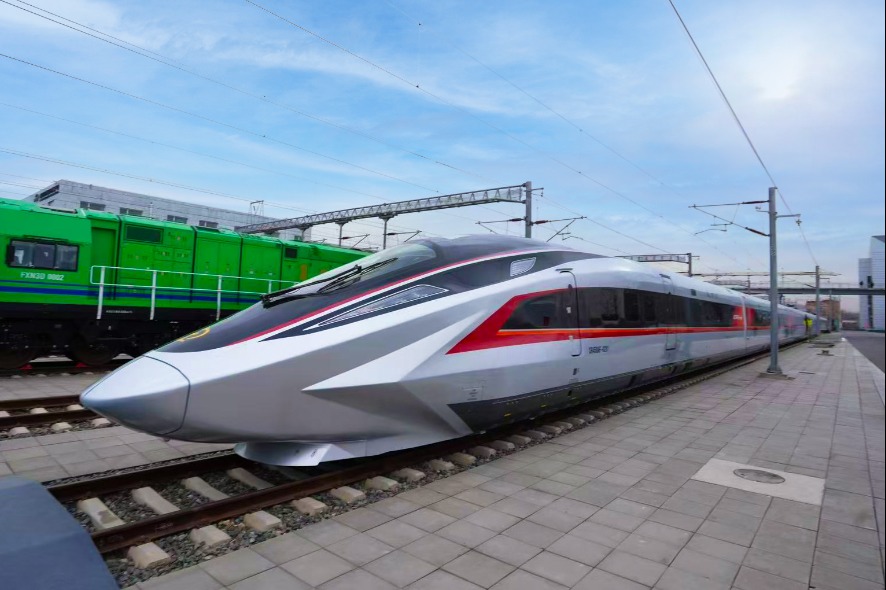Luxury experiences define coastline cruises


Industry insiders said the COVID-19 has hurt the global cruise ship industry. In 2020, major cruise line operators such as Royal Caribbean International, Carnival Group and Norwegian Cruise Line saw their annual net losses reach $5.8 billion, $2.2 billion and $4 billion, respectively, according to their earnings reports.
Last year, more ships started to take to the waterways again and the global cruise industry in most markets had been crawling toward a gradual recovery.
CM-Viking said it had seen a growing demand from experience-hungry travelers. In some regional markets, many popular itineraries that typically attract English-speaking guests have sold out already for the next two years.
With incomes of some segments of population in China rising, the ongoing consumption upgrade trend is leading to demand for experiences like cruise ship voyages, and this may result in 8 to 10 million trips by 2025, the Cruise Lines International Association predicted.
Pierfrancesco Vago, executive chairman of MSC Cruises and global chairman of the association, said via video link during a recent cruise industry conference held in Guangzhou that China has become one of the most important and dynamic cruise tourism markets globally.
Before the pandemic, about 2 million tourists took cruises from ports in China annually, and the holding of the conference has further boosted the confidence of cruise operators, Vago said.
This year, due to sporadic COVID-19 cases and various travel policies of different cities in China, "micro-vacation" has been especially favored by Chinese tourists.
In March, the Chinese Academy of Social Sciences published a green paper about tourism, and it highlighted that "microvacation" is gaining popularity. Trips near people's residential cities have contributed to the majority of the domestic travel market's recovery.
CM-Viking said it believes "micro-vacation" is a bright spot in the Chinese tourism industry, and an opportunity for cruise operators. As a destination-focused brand, the company attaches great importance to a combination of destination activities and onboard offerings, featuring local performances and specialties, it said.
"Traditionally, ocean cruises mainly feature entertainment onboard. Now, many cruise trips focus more on onshore excursions," said Sun Wei, director of cruise products at Tuniu Corp, an online travel agency based in Nanjing, Jiangsu province.
"Besides, the booking cycle of taking cruise trips has been significantly shortened. In the past, travelers usually made reservations 15 days in advance. Now, they tend to book the trips a few days beforehand as they worry about sudden occurrence of new COVID-19 cases in some cities," Sun said.
From the shipbuilders' perspective, the new guideline would give full play to their shipbuilding power and present huge market advantages, and speed up the formation of a cruise and yacht industry ecosystem, complete with equipment producers with international standards.
By 2025, China is expected to generate demand for about 100 large-scale cruise ships. Growing demand for cruise tourism in China and the Asia-Pacific region will provide more business opportunities for Chinese shipbuilders, the Cruise Lines International Association predicted.
In early August, construction of the second China-developed cruise ship was started by Shanghai Waigaoqiao Shipbuilding Co, a State-owned shipyard in Shanghai.
Some 85 percent of the construction work on the first China-built vessel, built by the same company, has been completed and the ship is planned to be delivered in 2023 to serve the Chinese cruise market.
Carnival Corp, the world's largest leisure travel company, announced a 40:60 joint venture in late 2018 with China State Shipbuilding Corp, the parent of Shanghai Waigaoqiao Shipbuilding. Carnival will be the shipowner of the two China-built vessels.
The smooth progress shows that China's shipbuilding industry has preliminarily mastered the core technologies of the design and construction of large cruise ships, and the building of such ships in series can be expected soon, CSSC said.
"The shipbuilding industry, which is highly complex and comprehensive, involves general assembly manufacturing and shipbuilding support systems. Now, China leads the global market in total orders, but lags behind South Korea in high value-added and high-tech shipbuilding," said Wesley Xiang, executive director of the China unit at consultancy Frost& Sullivan.























